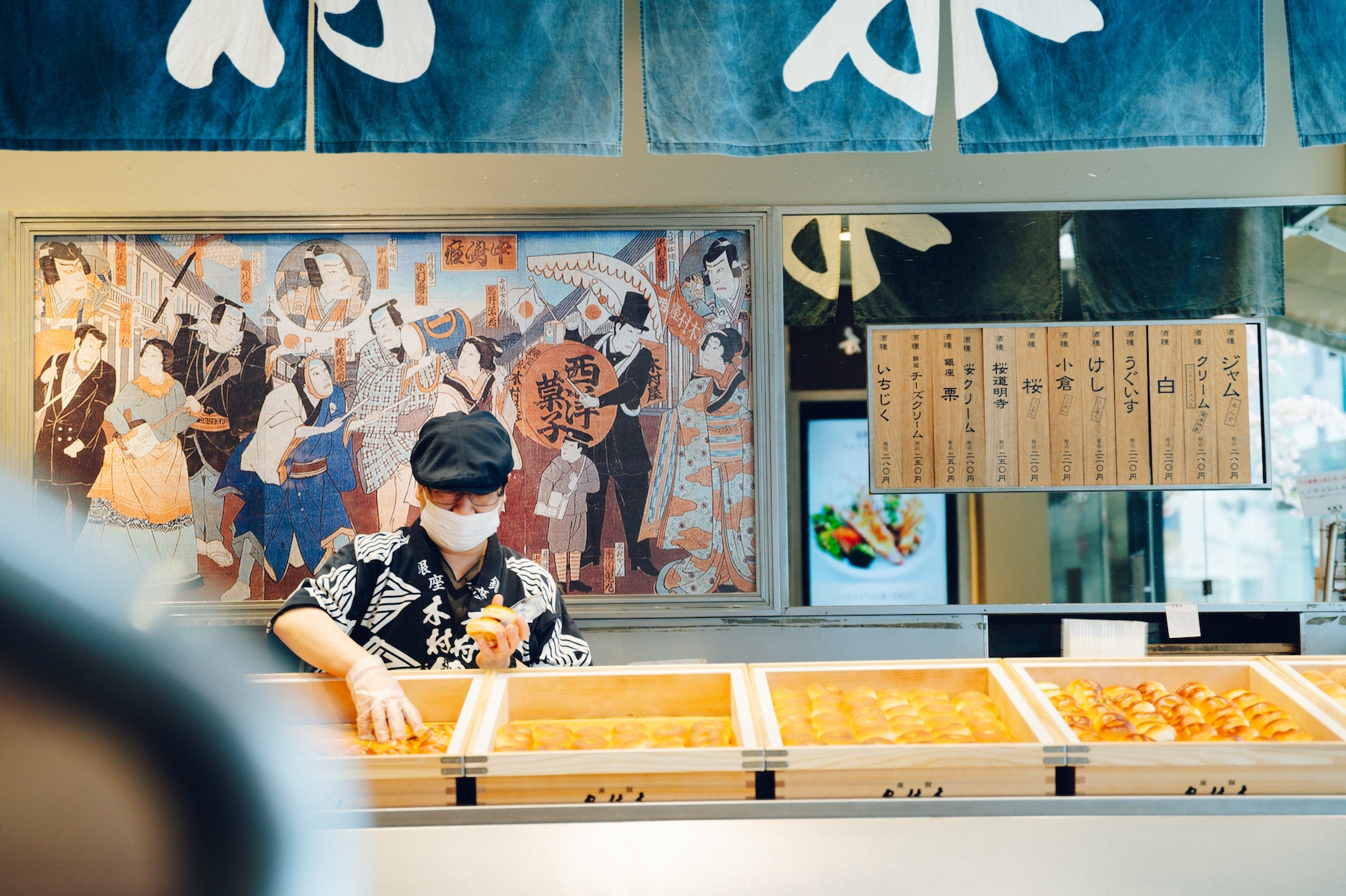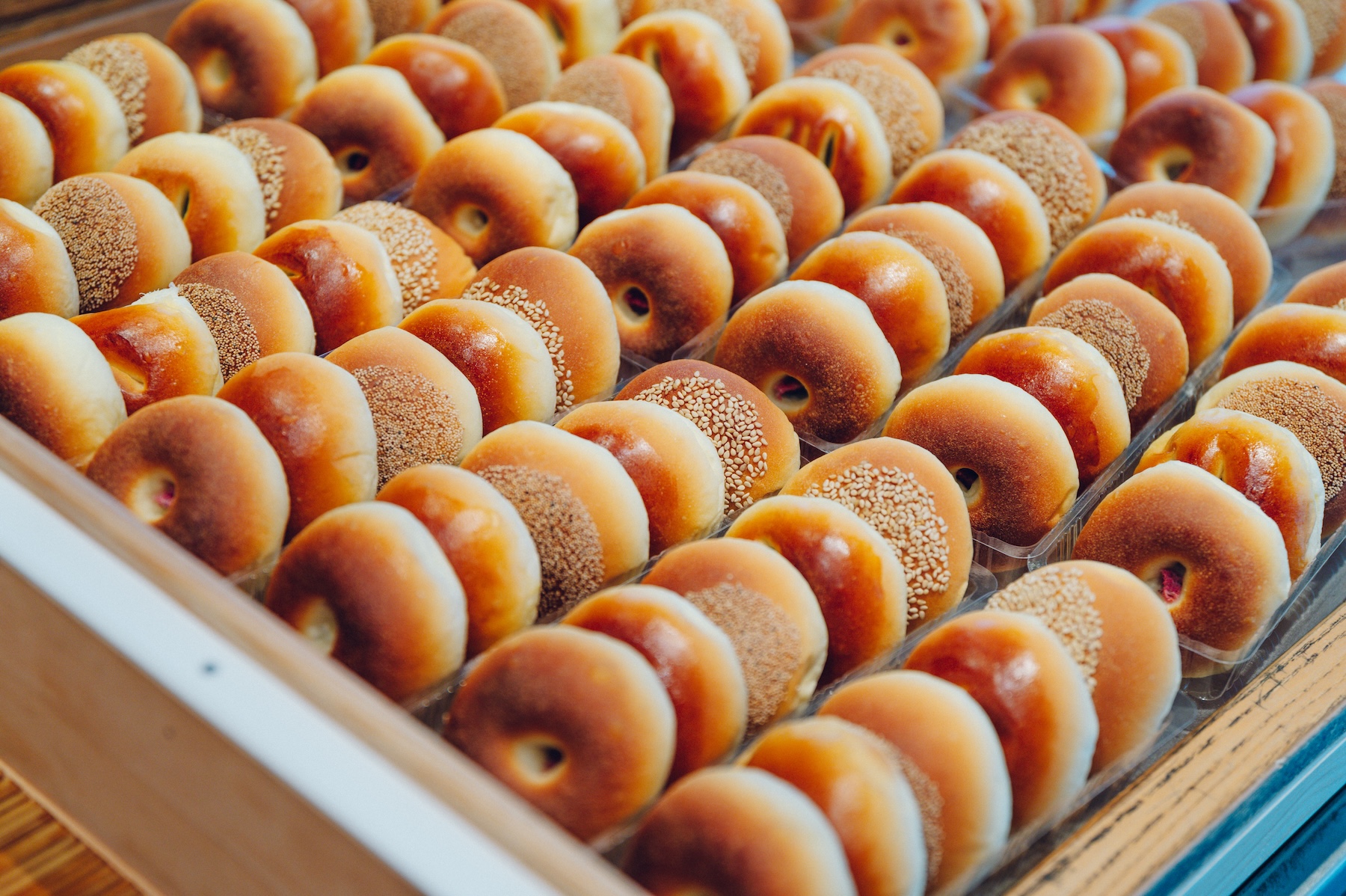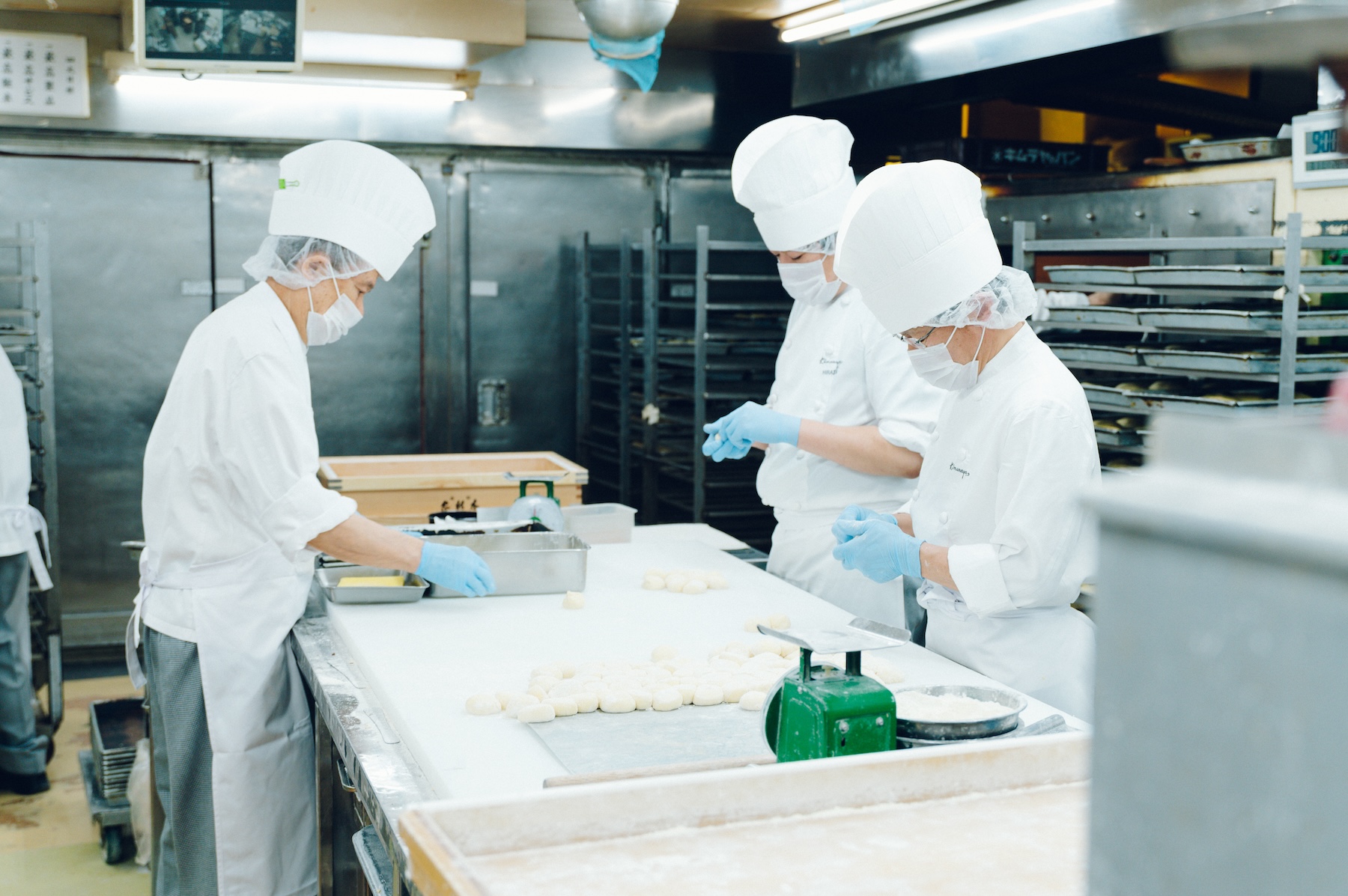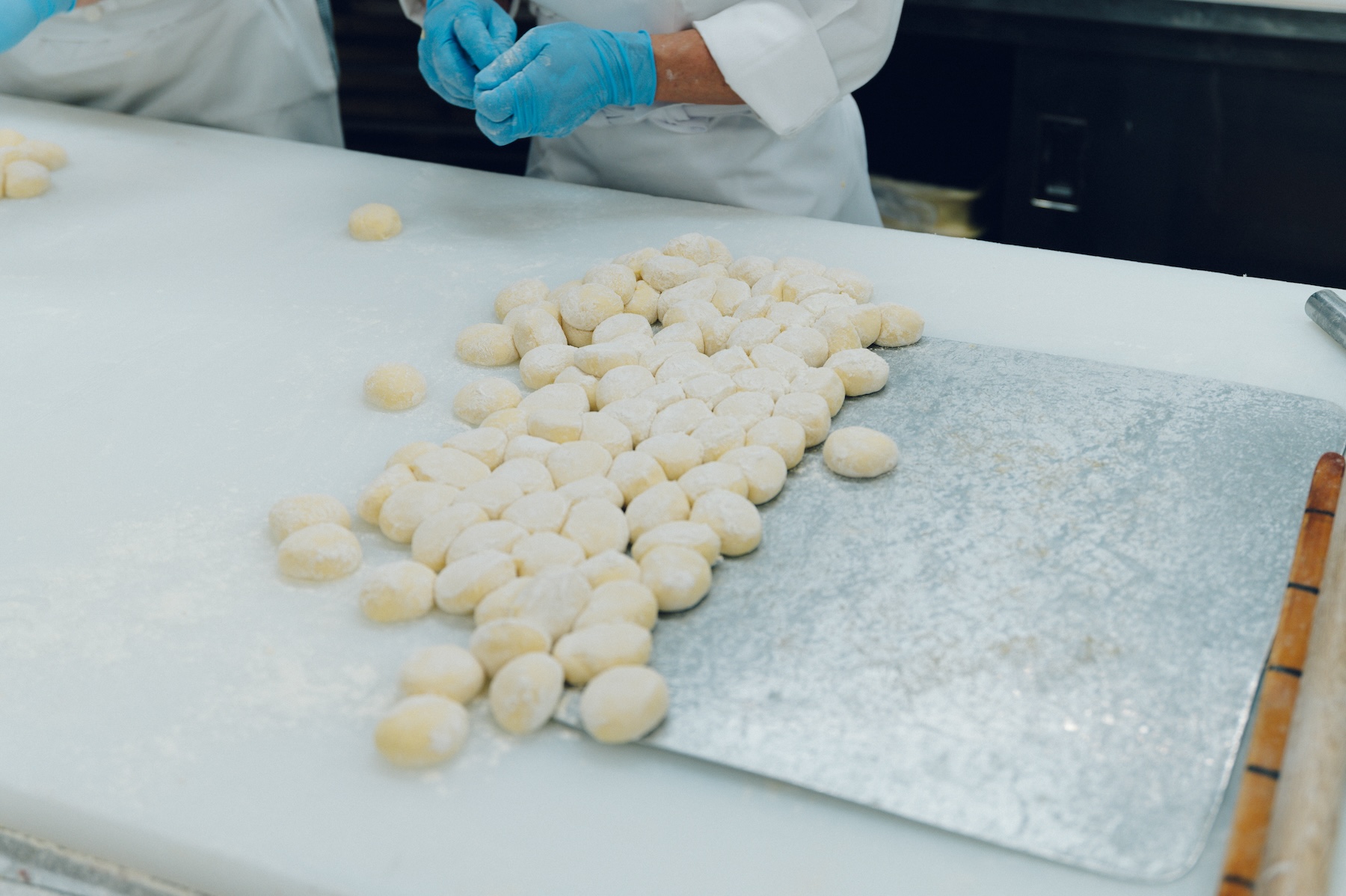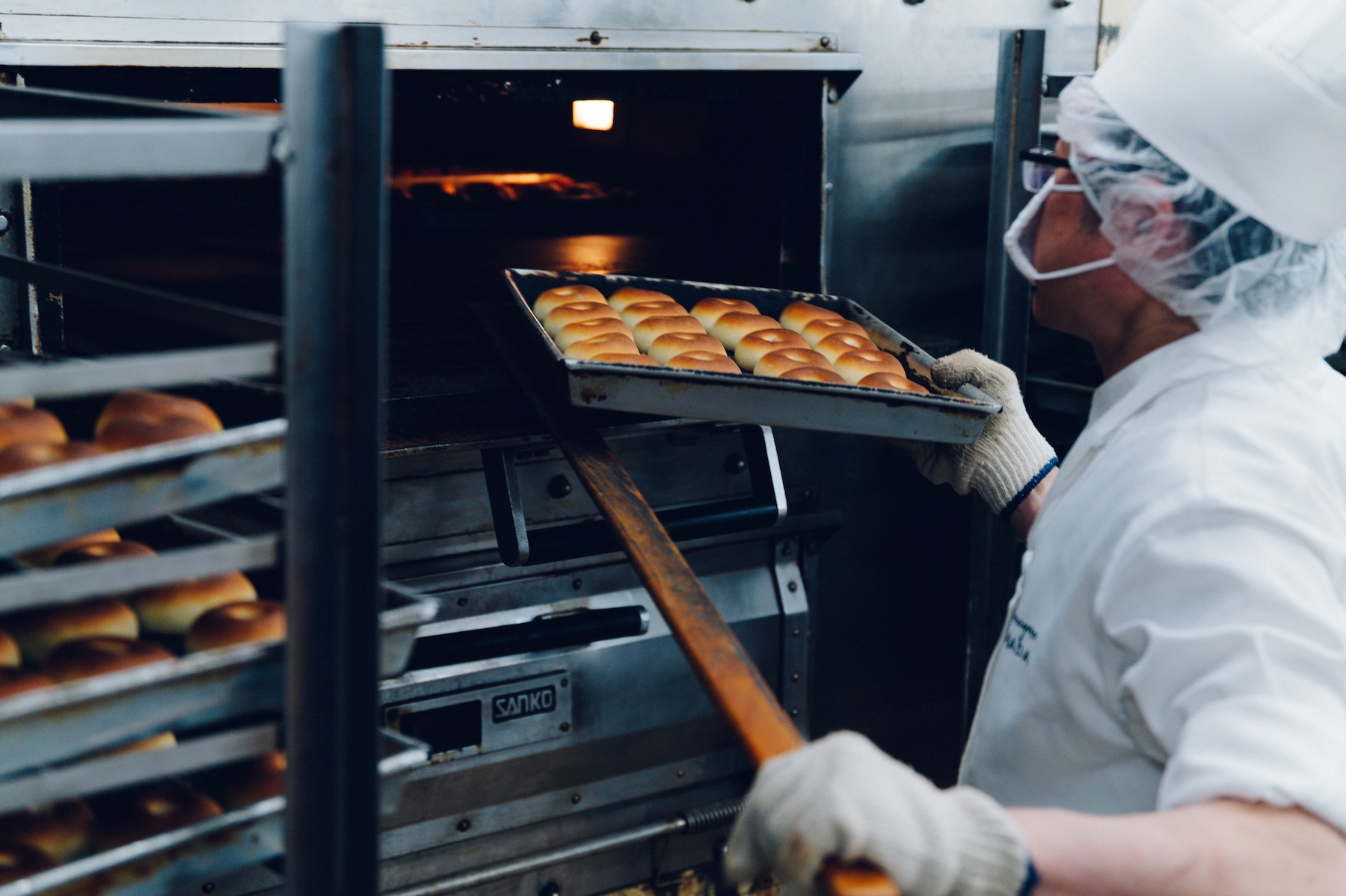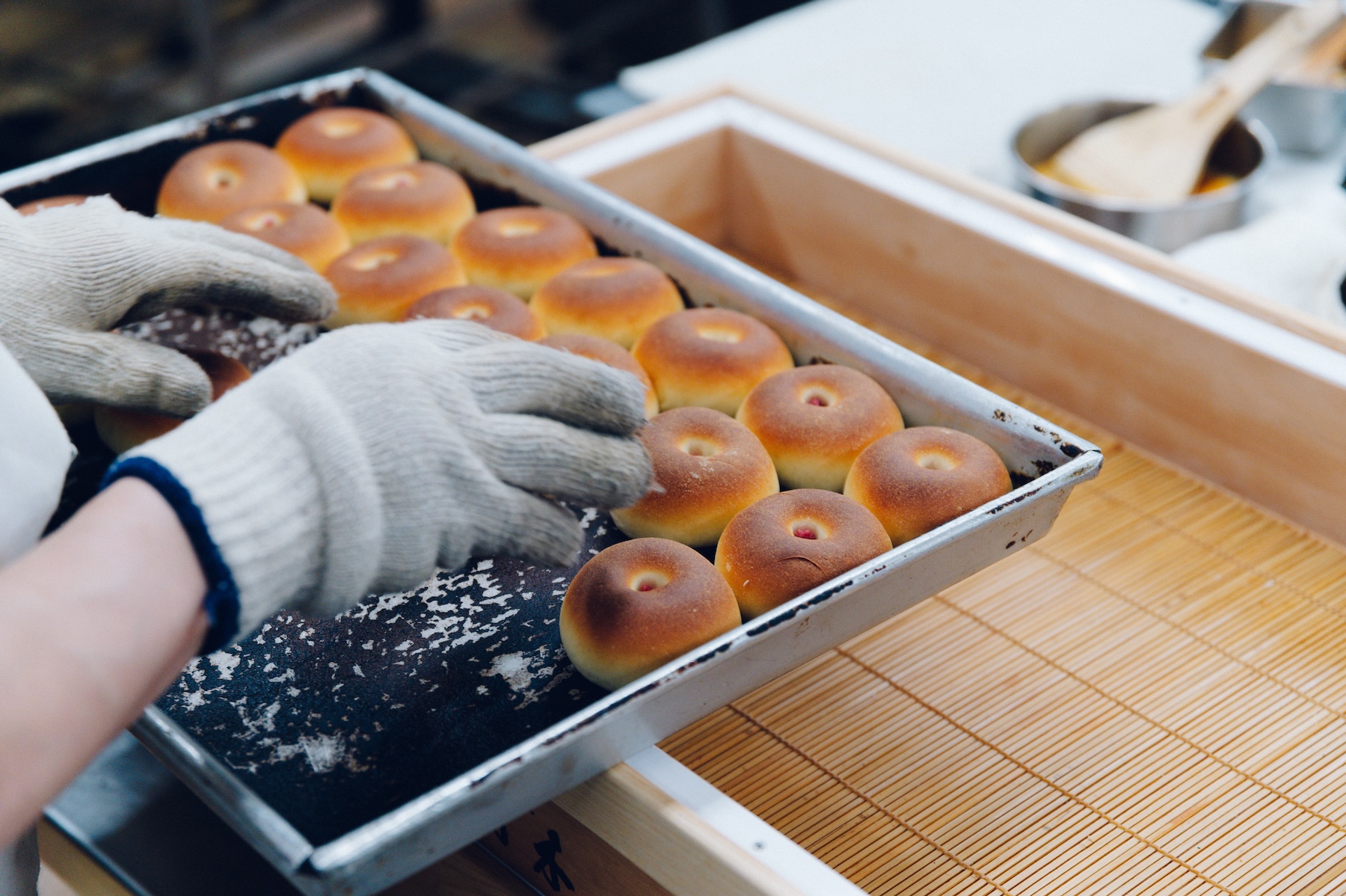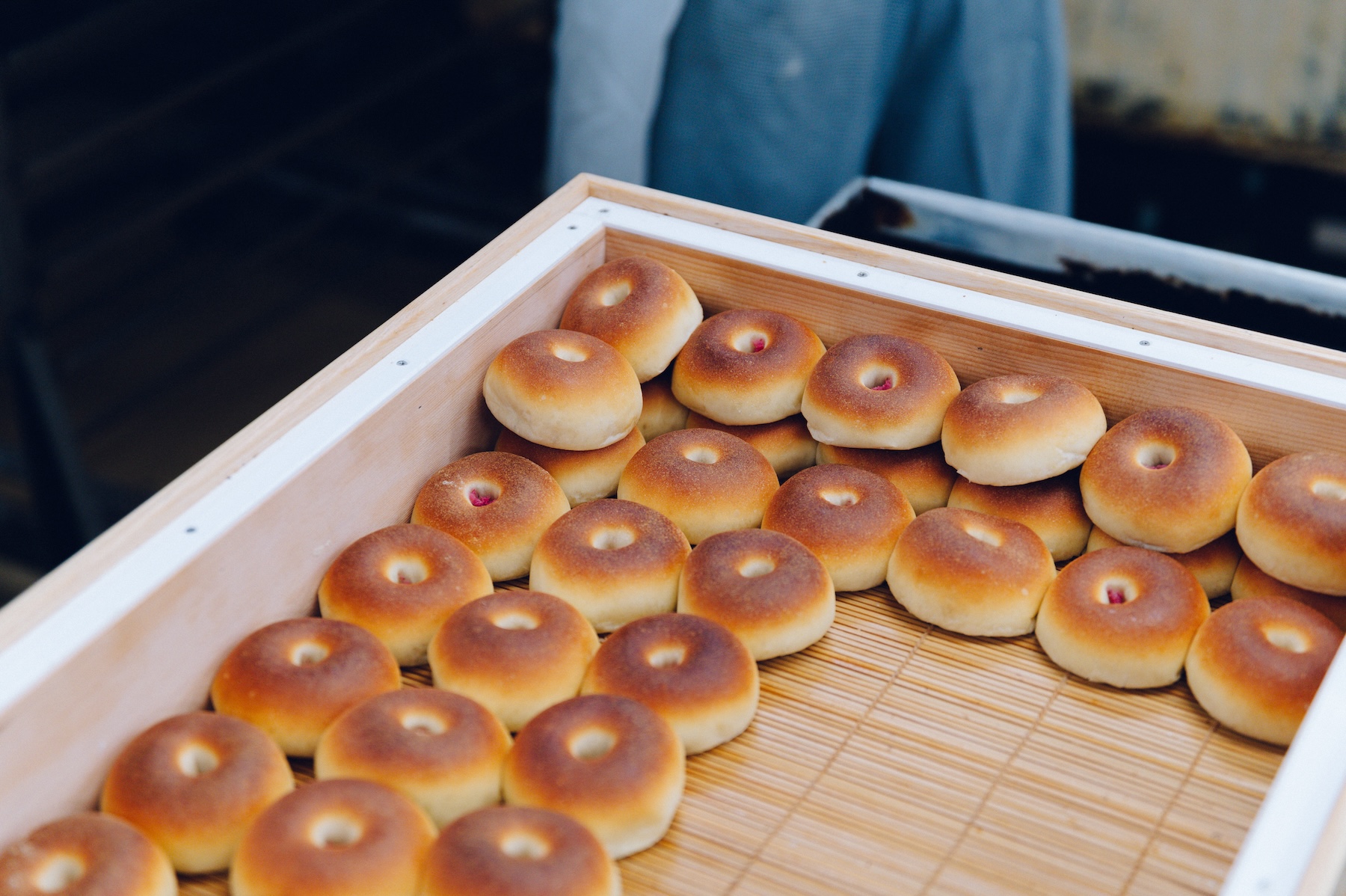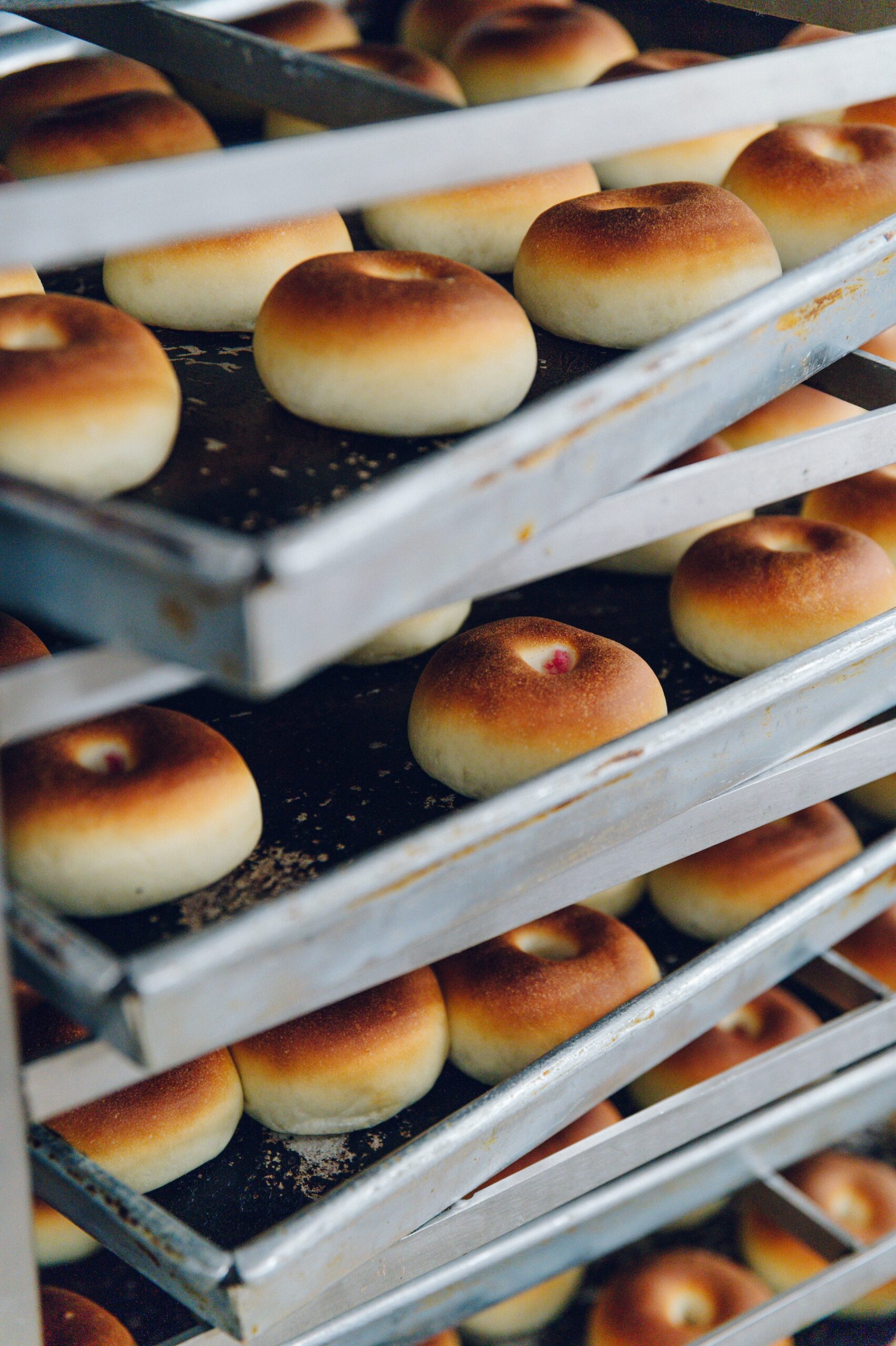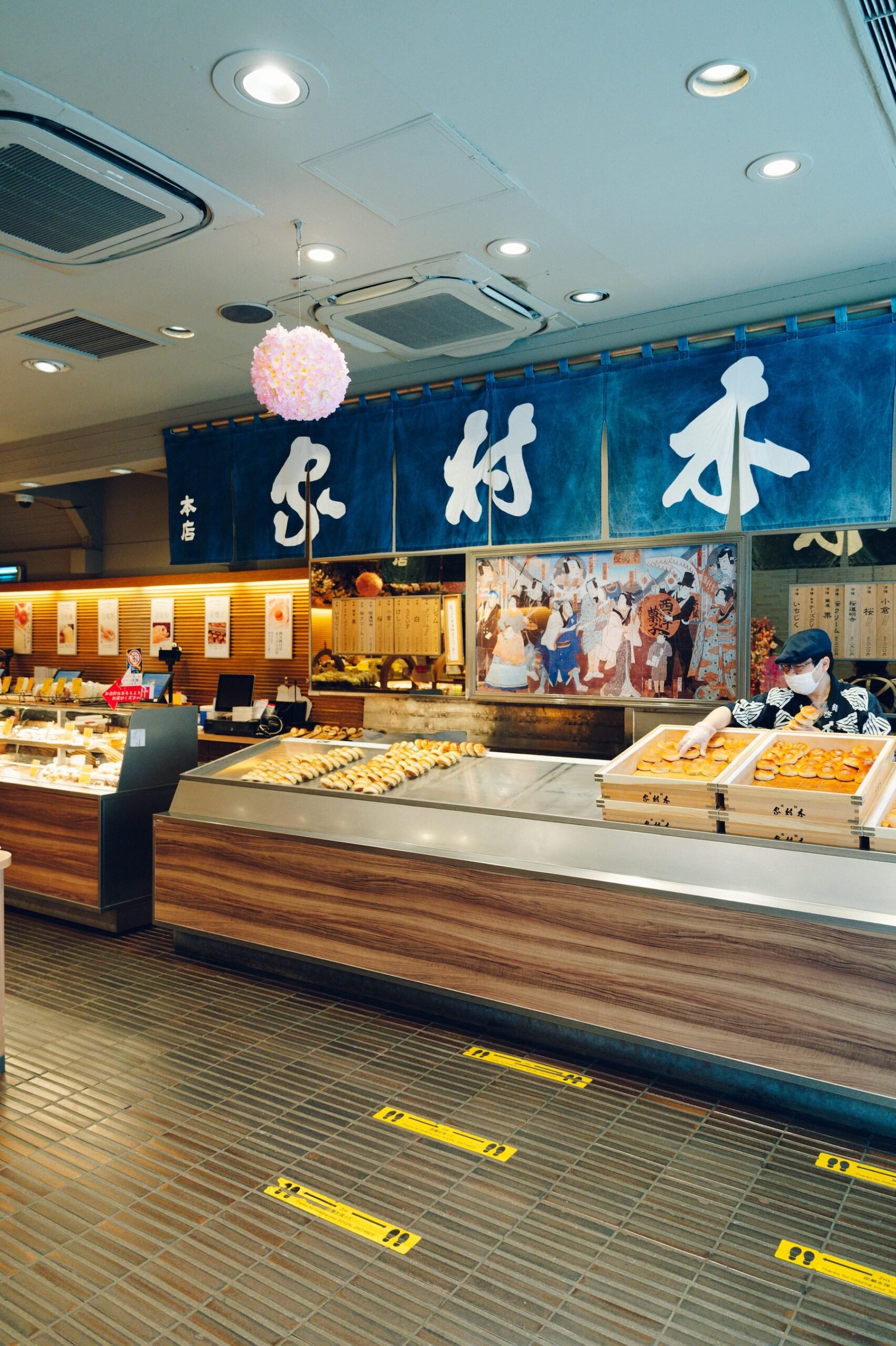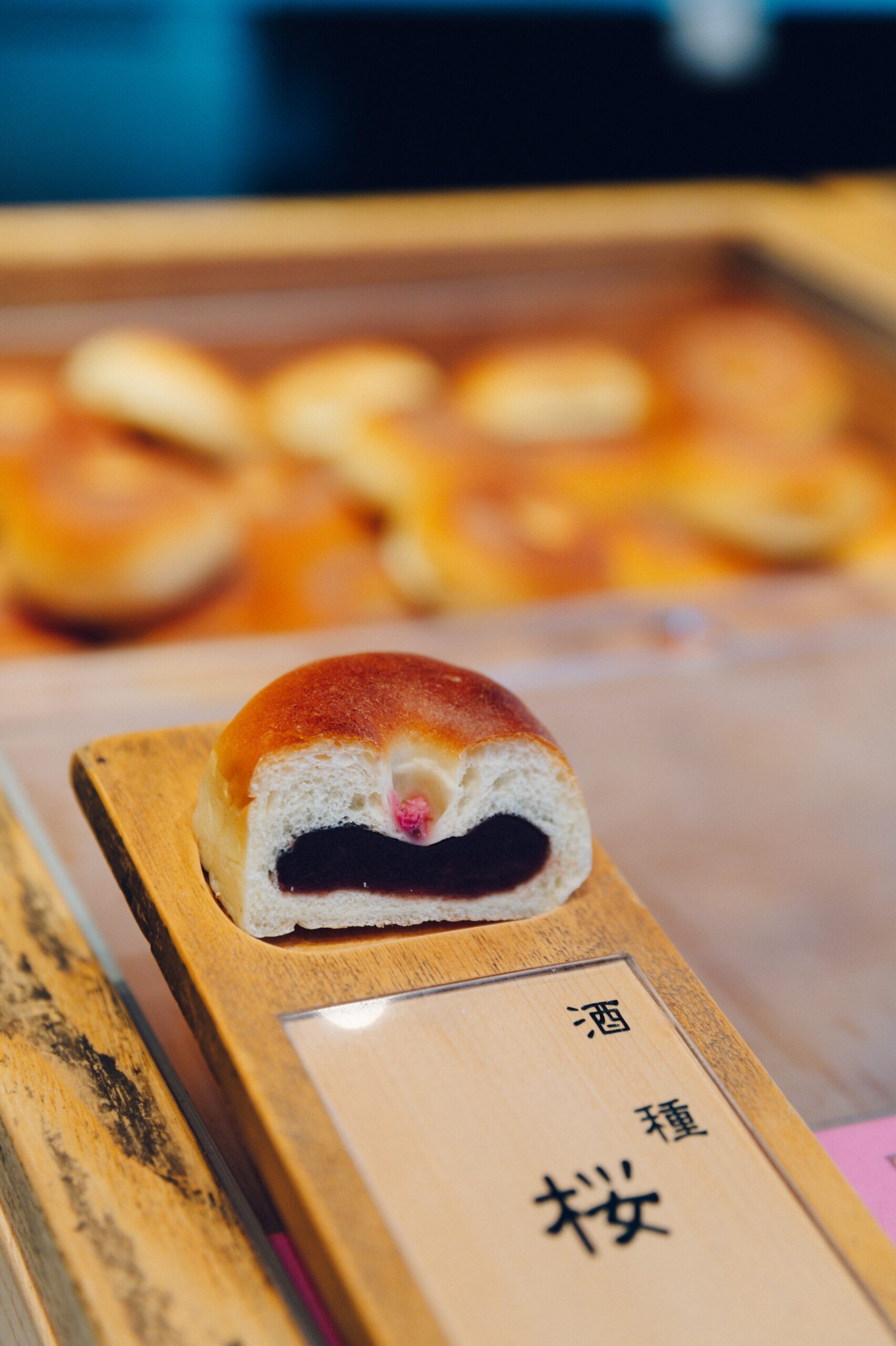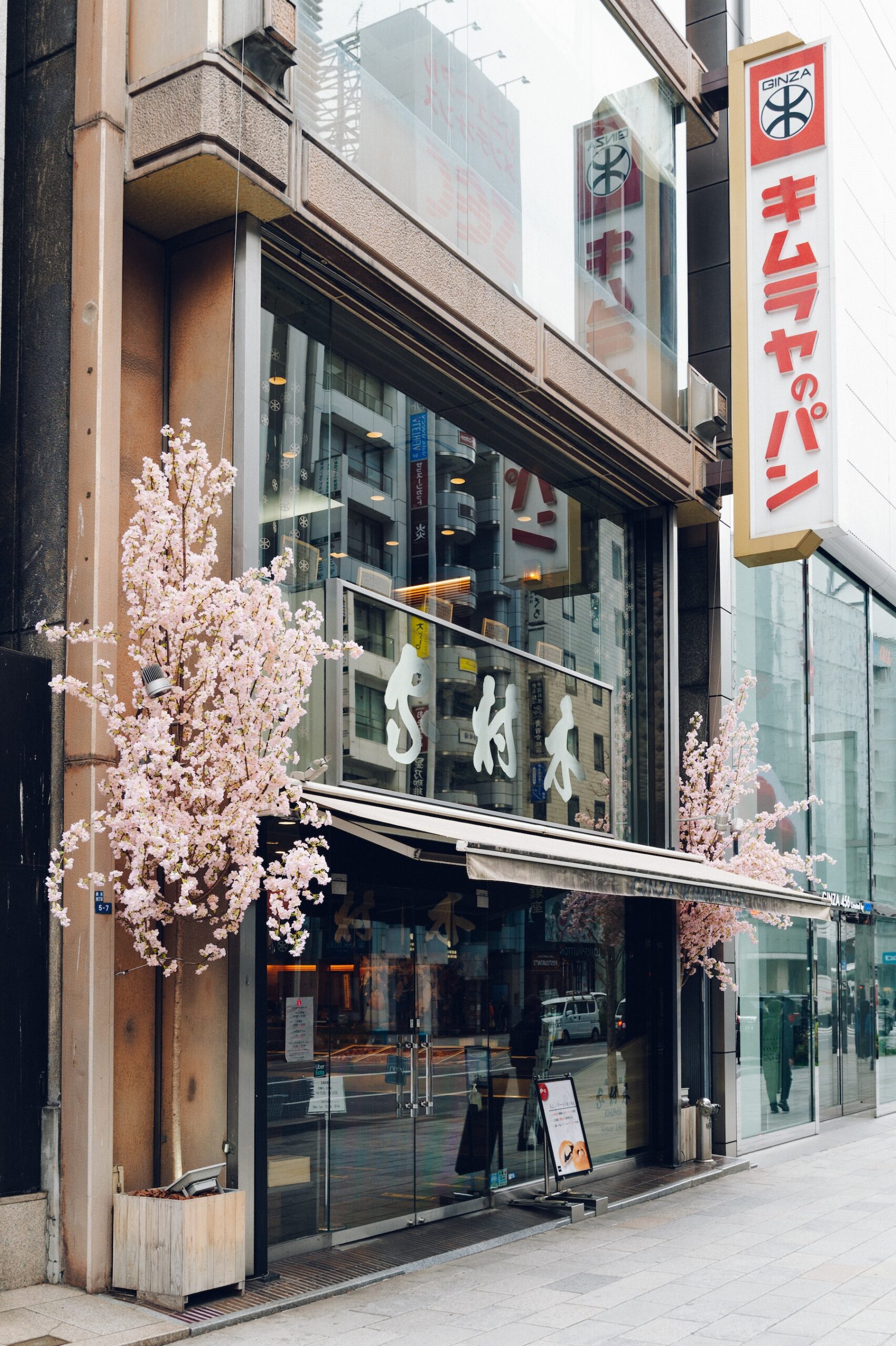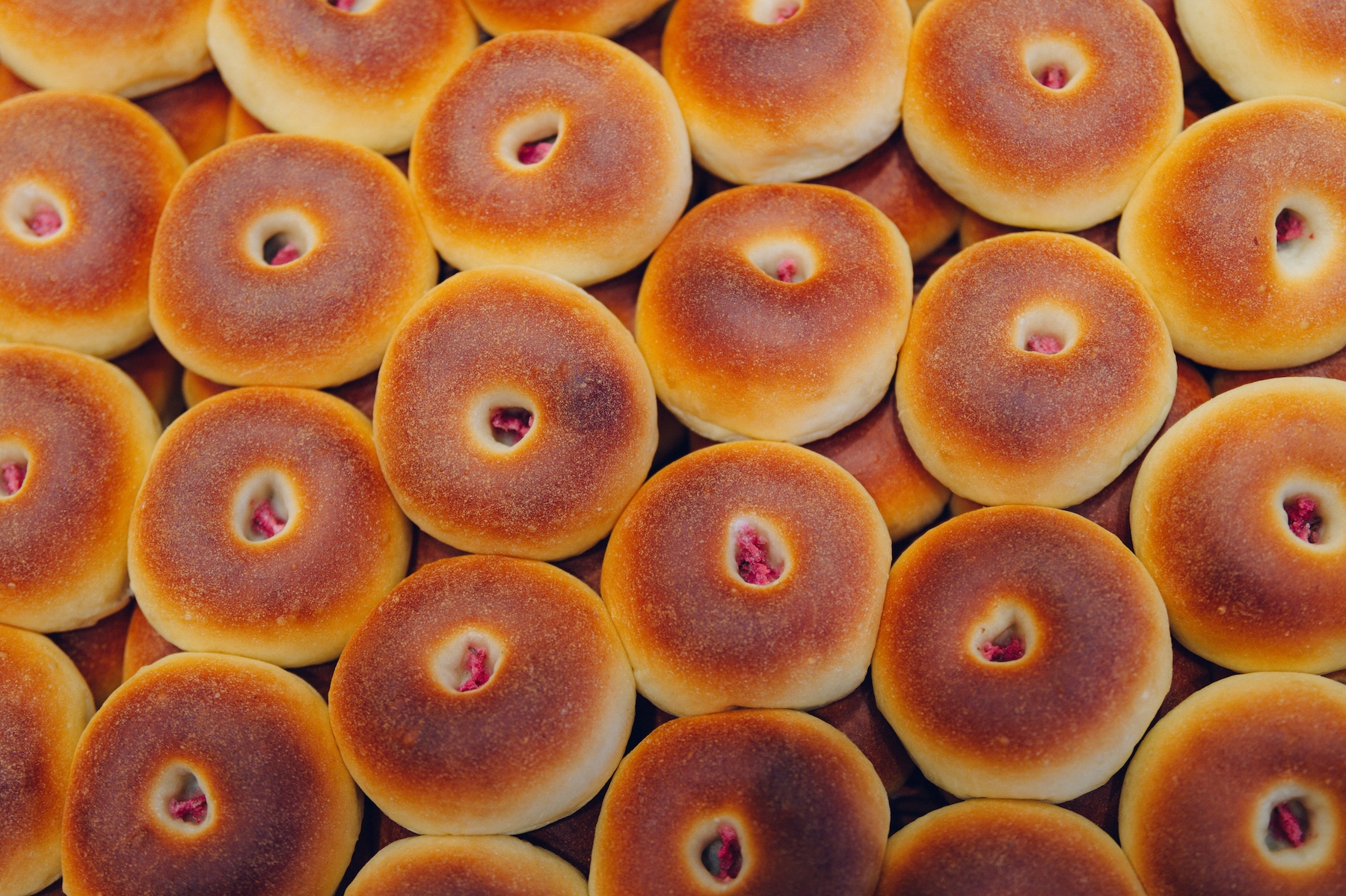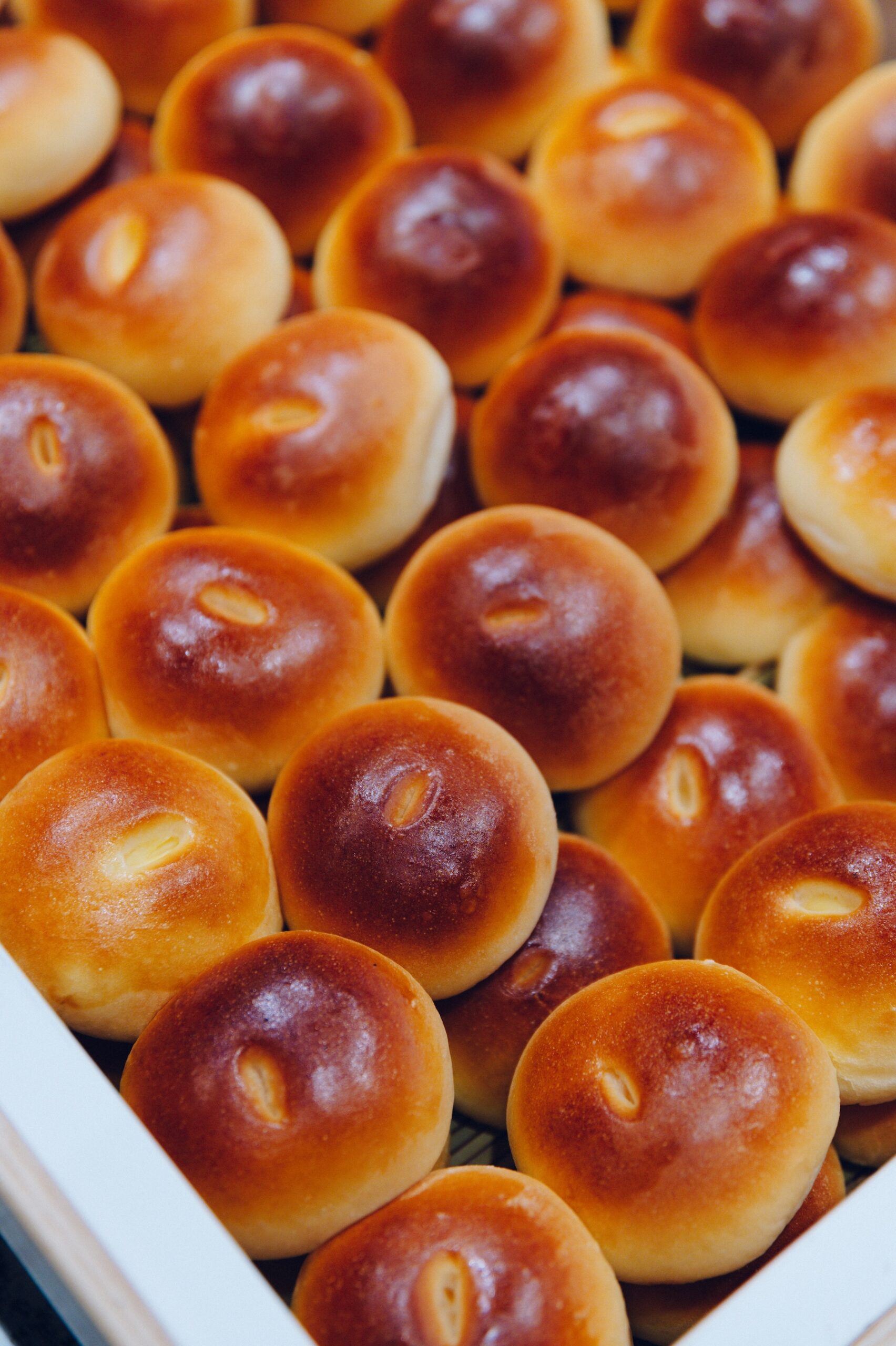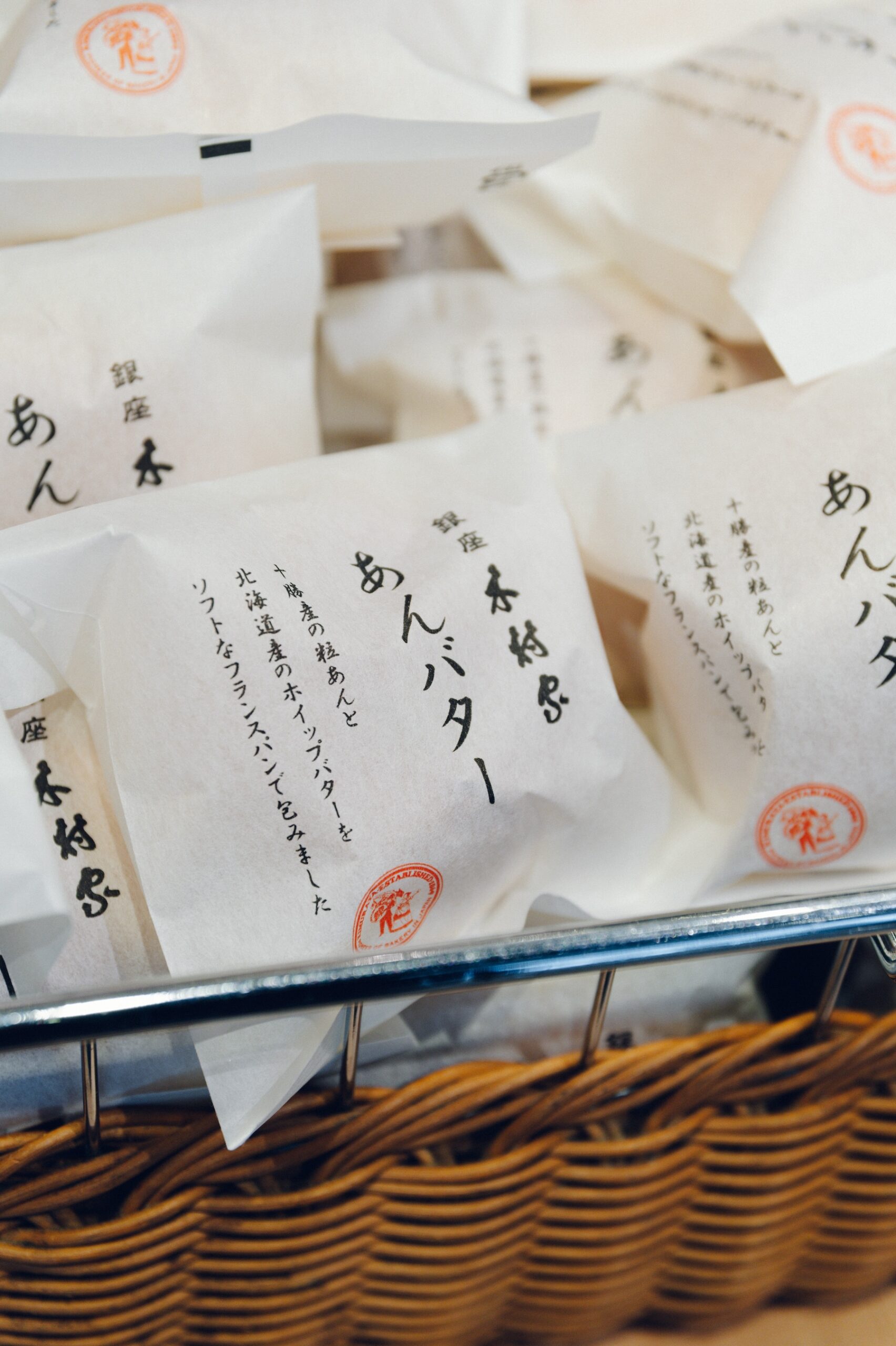CATEGORY
AREA
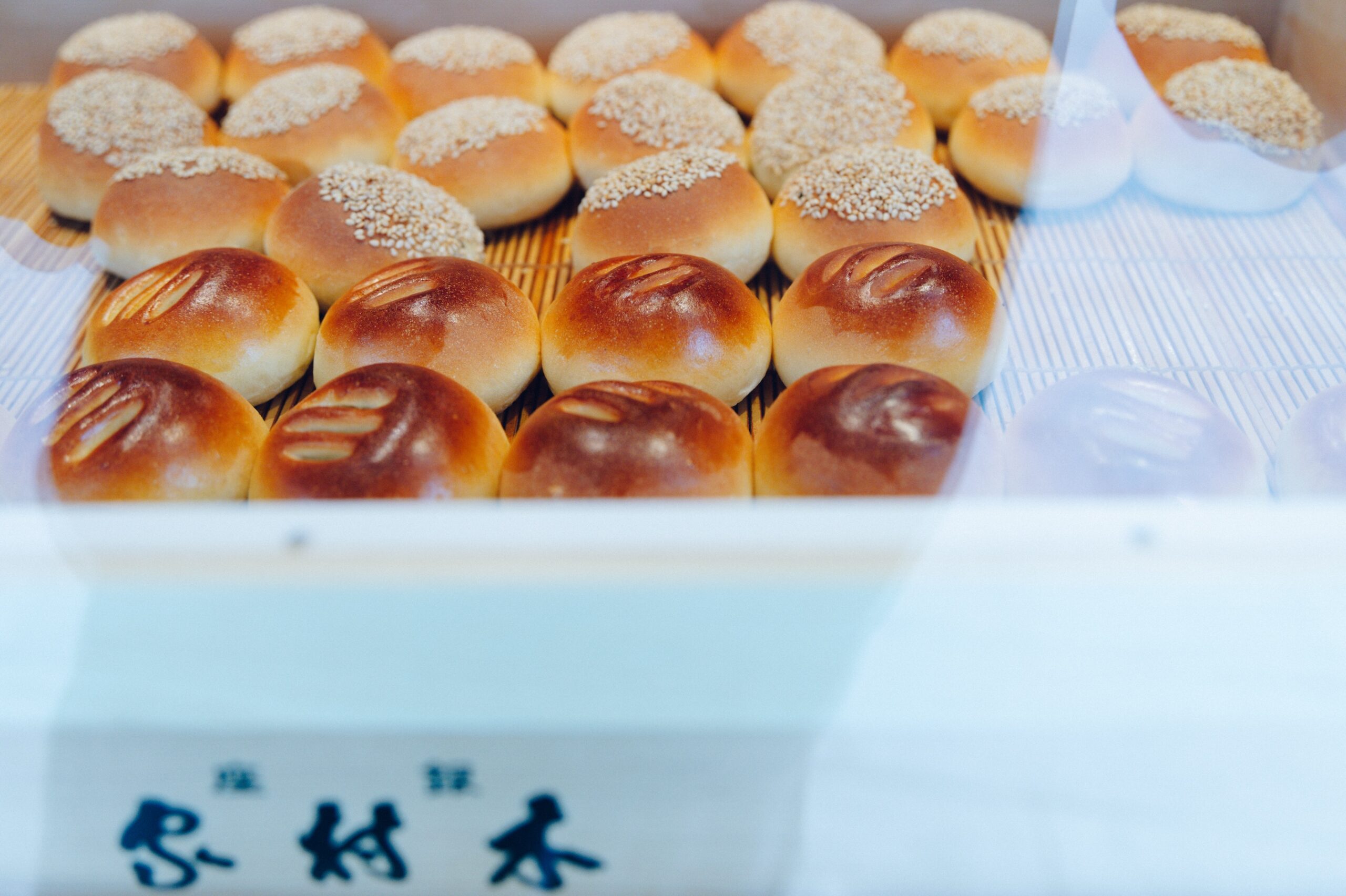
2025.03.24
A long-standing bakery in Ginza, known for its anpan, with over 140 years of history.
 address
address
 Nearest Station
Nearest Station
Ginza Kimuraya draws lines of customers from the moment it opens, whether on weekdays or weekends. In 1874 (Meiji 7), the bakery introduced its first anpan. The following year, its Sakura Anpan was presented to Emperor Meiji, making the bakery widely known across the country. At the entrance of the store, a wide variety of freshly baked anpan is displayed in boxes. Customers choose their favorites one by one, and the staff carefully wrap them on the spot. This warm, personal interaction is one of Kimuraya’s unique charms.
Ginza Kimuraya draws lines of customers from the moment it opens, whether on weekdays or weekends. In 1874 (Meiji 7), the bakery introduced its first anpan. The following year, its Sakura Anpan was presented to Emperor Meiji, making the bakery widely known across the country. At the entrance of the store, a wide variety of freshly baked anpan is displayed in boxes. Customers choose their favorites one by one, and the staff carefully wrap them on the spot. This warm, personal interaction is one of Kimuraya’s unique charms.
A wide variety of bean-jam buns are lined up at the entrance of the store. Tell the staff in front of you what you want, and they will pack it for you on the spot.
Kimuraya’s signature item is the Sakura Anpan, which was offered to Emperor Meiji in 1875. Its delicate flavor has been preserved with great care to this day.
imuraya’s anpan is a nostalgic favorite that nearly every Japanese person has tasted at least once. Its timeless, comforting flavor remains unchanged across generations. The secret lies in sakadane—a natural yeast made by fermenting rice and malted rice. Unlike conventional yeast, sakadane requires over a full day of preparation. Skilled artisans handle the process with great care and dedication. The red bean paste inside is made from carefully selected azuki beans from Hokkaido. Among the various types, the Sakura Anpan especially stands out, maintaining the refined, deep flavor passed down from the bakery’s founding.
Bread sold on the first floor is baked fresh daily in the factory on the 7th and 8th floors. The skilled work of the bakers is essential to preserving Kimuraya’s signature taste.
One of Ginza Kimuraya’s main attractions is its in-house bakery on the 7th and 8th floors, where bread is freshly baked every day. You can enjoy the warm, soft anpan in its best condition, straight from the first-floor bakery. Toward the back of the store, you’ll find savory breads, sandwiches, and loaves—many people come here to pick up bread for lunch. The anpan also makes for a great gift, and can be shipped directly from the store. Each floor of the building houses a different dining space: the 2nd floor is a café, the 3rd a Western-style restaurant, and the 4th a French bistro. Each one offers carefully prepared dishes worth trying—be sure to check them out.
The navy noren (curtain) at the entrance bears the name “Kimuraya,” written by Tesshū Yamaoka, a Tokugawa retainer known for his mastery of calligraphy, swordsmanship, and Zen.
Another unique feature of the Kimura family is that bread cut into pieces is placed by the menu so that customers can see what is inside.
Ginza Kimuraya's signature "Sake-Type Cherry Blossom Anpan" was once presented to Emperor Meiji. The red bean paste, made from azuki beans from around Tokachi in Hokkaido, has a strong sweetness that is perfectly balanced with the bread dough. The cherry blossom petals on the navel are soaked in plum vinegar to preserve the flavor, then hand-picked one by one and soaked in salt to finish. Sake-tane sakura anpan 220 yen / piece
Filled with rich cheese cream made from Hokkaido cream cheese. A recommended choice for those who prefer Western flavors or don’t enjoy sweet bean paste. Sakadane Ginza Cheese Cream 250yen/each
A new Kimuraya classic: coarse red bean paste and whipped butter from Hokkaido wrapped in soft French bread dough. Popular among international visitors as well. Specially Made An Butter 350yen/each
Allergy Information At Ginza Kimuraya, all bread is made and baked in the same building as the storefront. Therefore, all products may be subject to potential cross-contamination with the following allergens. Cross-contamination refers to the unintentional inclusion of allergens during the production process, even if they are not used as ingredients. Specified allergens: Shrimp, crab, wheat, buckwheat, egg, milk (including dairy products), peanuts, walnuts Recommended for labeling: Almonds, abalone, squid, salmon roe, oranges, cashew nuts, kiwifruit, beef, sesame, salmon, mackerel, soybeans, chicken, banana, pork, macadamia nuts, peach, yam, apple, gelatin Other ingredients may also be used. If you have any concerns, please contact the store or ask the staff.
(Specified raw materials)
Shrimp, crab, wheat, buckwheat, eggs, milk (including dairy products), peanuts, walnuts
(equivalent to specified raw materials)
Almonds, abalone, squid, salmon roe, oranges, cashews, kiwi fruit, and beef,
Sesame, salmon, mackerel, soybeans, chicken, banana, pork, macadamia nuts, peach, yam, apple, gelatin
(Other raw materials also used)
If you have any questions, please feel free to contact our stores or in-store staff.
The information contained this article was correct as of 03/24/2025 (the time of publication)
